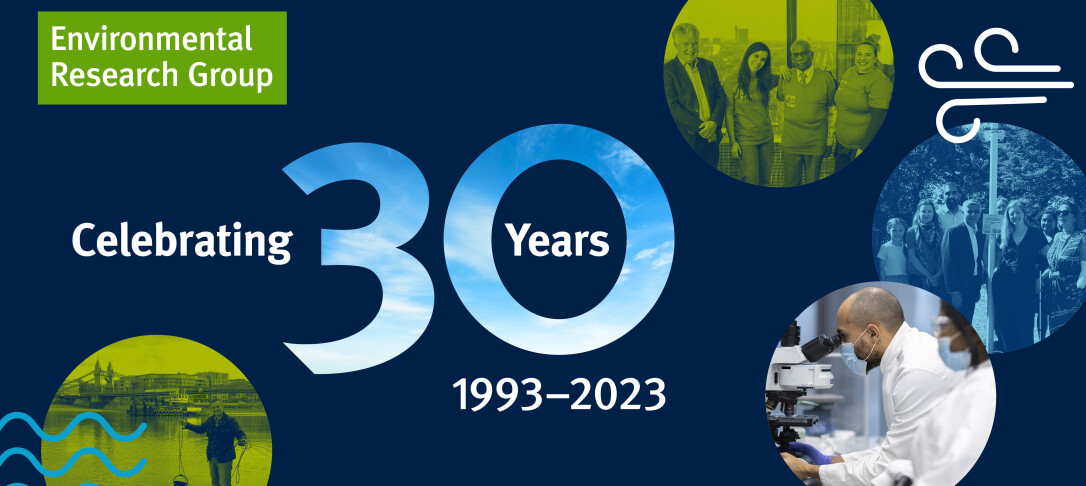
Welcome to the 4th seminar of the six-part series celebrating Imperial College London’s Environmental Research Group’s (ERG) 30 years of research in environment and health. In partnership with the Policy Forum, are pleased to present a public seminar series addressing ‘Environment and health challenges in a changing world’. This session, chaired by Professor Benjamin Barratt, Deputy Director of the ERG, will feature talks, posters and a panel discussion exploring 30 years of air quality data, and the future of the field, followed by a drink’s reception. The theme of the seminar is:
The Future of Air Quality Measurements – The 30th Anniversary London Air Quality Network Seminar’.
Air quality measurements were the foundation stone of the Environmental Research Group, and building the London Air Quality Network is one of its proudest achievements. The high quality data that the network provided to London has supported successive local and national efforts to reduce emissions and understand the impact that poor air quality has on people’s health. However, substantial challenges remain as the World Health Organisation has set target values that would only be met if PM2.5 levels in London were reduced by over 50%. Understanding how we can meet these challenges requires new measurement approaches to understanding the influence that different emission sources have on air quality, and new communication approaches to ensure the public understand the benefits of improved air quality.
In the seminar will hear from Imperial researchers about how an improved understanding of exposure can be achieved through a more densely distributed network of monitors based on new sensing technology, how more detailed measurements of the composition of particles can lead to more targeted abatement policies, and about the importance of exposure in transport environments. Importantly, the technology and behavioural changes required to keep improving air quality will need to be communicated effectively to the public, and this requires close cooperation with the local communities affected. We will hear how putting the measurements in the hands of the people affected by poor air quality is such a powerful communication tool.
The panel is comprised of experts from the clean transport industry, local authority transport and climate change policy, and social innovation; it will be chaired by Prof Frank Kelly. The discussion aims draw out the important themes from the presentations, and establish the key areas that measurements play in helping stakeholders to deliver the necessary improvements in air quality.
Please note, seats are limited, and tickets (though free) will be required. The agenda for the day is as follows:
13.30– Registration, tea and coffee
13.45– Welcome fromProfessor Benjamin Barratt
14.00 – Session I
- The London Air Quality Network (LAQN) – 30 Years in Review–Dr Gary Fuller, ERG
- Measuring Aerosol Composition – Developing Targeted Mitigation–Dr David Green, ERG
- Citywide Sensor Networks–Dr Mohammed Iq Mead, ERG
15.00– Coffee break and poster presentations
15.20 – Session II
- Exposure in Transport Micro-Environments–Dr Audrey de Nazelle, Centre for Environmental Policy, Imperial College London
- How Can Communities Use Air Quality Data?–Dr Kayla Schulte, ERG
- The Future of PM2.5 Monitoring in the UK– Isobel Moore, DEFRA
16.20 – Panel discussion– chaired byProfessor Frank Kelly, Director of the ERG
Panellists include
- Georgina Hammerton, Senior Project Manager at The Social Innovation Partnership
- John Galsworthy, Director of Climate Change and Transport from the London Borough of Hammersmith & Fulham
- Lucy Parkin, Director of ESG, KLEANBUS
17.00– Drinks and networking reception until 18.00.
—————————————————————————————————-
What is theLondon Air Quality Network(LAQN)?
The LAQN was formed in the early 1990’s to coordinate and improve air pollution monitoring across London. It is currently the largest city-region monitoring network in Europe, co-ordinated and managed centrally by Imperial College London. This large grouping of over 110 local authority reference measurement sites forms a relatively dense network of high-quality air pollution measurements across the Greater London area. It is also a core element in the operation of the Breathe London hyperlocal monitoring network.
—————————————————————————————————-
About the Organisers
The Environmental Research Groupat Imperial College London combines air and water pollution science, toxicology and epidemiology to determine the impacts of environmental pollution on health and the causal factors. We work closely with those responsible for air and water quality management to support policies and actions to minimise air and water pollution health effects.
Imperial Policy Forumis the College’s policy engagement unit. It connects Imperial researchers with policymakers to discover new thinking on global challenges. Through IPF, policymakers develop relationships with Imperial researchers working in subject areas relevant to their work, sharing the latest research to support evidence-informed policy development. IPF also supports researchers to better engage with policymakers and to understand government’s research needs.
